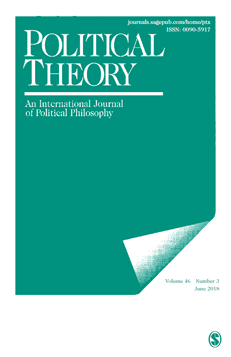-
Danny Reviews Against Marriage
You can read the review here.
“I found Chambers persuasive: Against Marriage compelled me to rethink some of my ideas on the subject and brought much greater precision to others. And even those who disagree with much more of it will have to engage with it, as an integrated and reasonably comprehensive analysis of how the state should approach marriage.”
-
The American Conservative on Against Marriage
 They don’t like it. See here.
They don’t like it. See here.Note that the article does not always read the argument of the book accurately.
- all posts on culture and religion, all posts on liberalism, all posts on the body and beauty, liberalism, multiculturalism and religion, the body
Reasonable Disagreement and the Neutralist Dilemma
 Chambers, Clare, “Reasonable Disagreement and the Neutralist Dilemma: Abortion and circumcision in Matthew Kramer’s Liberalism with Excellence” in The American Journal of Jurisprudence (May 2018).
Chambers, Clare, “Reasonable Disagreement and the Neutralist Dilemma: Abortion and circumcision in Matthew Kramer’s Liberalism with Excellence” in The American Journal of Jurisprudence (May 2018).You can read the paper here.
Abstract: This paper starts by investigating the idea of reasonable disagreement. It then considers Matthew Kramer’s argument that there is no neutral solution available to the disagreement over abortion. The paper argues that Kramer’s account has wider application, and identifies a neutralist dilemma. The neutralist dilemma applies when, of two policy options available to the state, one is unreasonable. It follows that the state should enact only the reasonable policy. However, in a neutralist dilemma the fact of reasonable disagreement due to the burdens of judgment means that it is not possible for the state to act at all, whether legislating or not, without deviating from neutrality. The paper develops the concept of the neutralist dilemma and then applies it to another case discussed by Kramer: infant circumcision. The paper argues that the debate over infant circumcision can be framed as a neutralist dilemma, but that the most plausible resolution of the dilemma results in an argument in favor of the legal prohibition of the practice. This is a surprising result, since most liberal states do not restrict circumcision and since prohibition of circumcision might initially appear to be non-neutral or even illiberal; however it is consistent with the tenets of neutralist liberalism.
- Against Marriage, all posts on feminism, all posts on liberalism, all posts on marriage, media, read
Fabian Society on Against Marriage
 Andrew Harrop, General Secretary of the Fabian Society, reviewed Against Marriage in Fabian Review, May 2018. You can read the full review here.
Andrew Harrop, General Secretary of the Fabian Society, reviewed Against Marriage in Fabian Review, May 2018. You can read the full review here.“Marriage makes me uncomfortable, whether the reason is political, historical, cultural or aesthetic. No matter how many married couples I see living modern equal relationships, for me, the whole concept is tainted by its patriarchal past. But I say ‘for me’ with good reason, as I have dozens of friends and comrades who disagree. This is a fault-line issue that divides socialists and feminists amongst themselves. In Against Marriage, Clare Chambers makes the case for why egalitarians and liberals should reject marriage. It is political philosophy at its most practical and readable.”
-
Against Marriage reviewed in Political Theory
 Against Marriage is reviewed by Tamara Metz, author of Untying the Knot, in Political Theory. You can read the full review here. An excerpt follows.
Against Marriage is reviewed by Tamara Metz, author of Untying the Knot, in Political Theory. You can read the full review here. An excerpt follows.“This is a distinct and important contribution to an increasingly crowded field of liberal political philosophy on marriage and the state and, perhaps most interestingly, to our understanding of the liberal project broadly. … Where other liberals seek more vigorously to balance competing demands of freedom and equality, or emphasize freedom, Chambers hews rigorously to an egalitarian position. You won’t find another book that does this so effectively or by way of such productive engagement with existing scholarship. Laying out the egalitarian case in such clear and compelling terms, Chambers highlights the challenges it presents to the liberal side of her liberal feminist equation. In so doing, Against Marriage leaves us wondering just how tenable the liberal feminist project is.”
“Chambers leads us to these questions by bringing us to the edge of the liberal feminist frontier. This alone would make Against Marriage a distinct and important contribution. But, of course, Chambers does more. She offers a compelling vision of why and how to move beyond marriage and points us in the direction of work that needs to be done. All with the grace and graciousness of an analytical philosopher running at full throttle.”